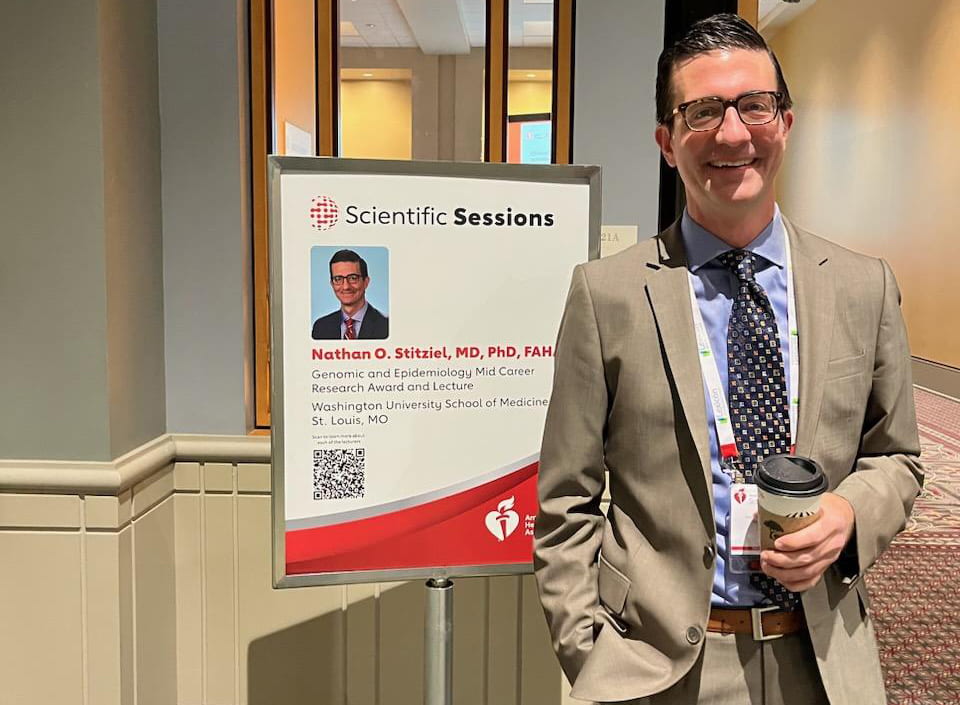Next-Generation Cardiovascular Genetics
The Stitziel Lab studies human genetic variation underlying Mendelian and complex forms of cardiovascular disease. We utilize a range of cutting edge next-generation genomic techniques to map causal disease genes, dissect mechanisms and pathways underlying disease, and apply insights from our studies to improve clinical care and human health.
Located at the Washington University School of Medicine in Saint Louis, MO, we are members of the Center for Cardiovascular Research and the McDonnell Genome Institute.
New publication:
Jared S. Elenbaas, Upasana Pudupakkam, Katrina J. Ashworth, Chul Joo Kang, Ved Patel, Katherine Santana, In Hyuk Jung, Paul C. Lee, Kendall H. Burks, Junedh M. Amrute, Robert P. Mecham, Carmen M. Halabi, Arturo Aliso, Jorge Di Paola, Nathan O. Stitziel. SVEP1 is an Endogenous Ligand for the Orphan Receptor PEAR1. Nat Commun. 2023 Feb 15;14(1):850.
SVEP1 and PEAR1 causally and concordantly relate to human platelet traits and cardiovascular disease.
a Two-sample MR of estimated SNP effects (with 95% confidence intervals) on MPV (y-axis) and either PEAR1, green, or SVEP1, blue, in deCODE (x-axis). The causal estimate is designated by a line of the corresponding color. SVEP1 Beta = 0.018, P = 5.1 × 10−6; PEAR1 Beta = 0.11, P = 1.8 × 10−8. b Two-sample MR of estimated SNP effects (with 95% confidence intervals) on platelet count (y-axis) and either PEAR1, green, or SVEP1, blue, in deCODE (x-axis). The causal estimate is designated by a line of the corresponding color. SVEP1 Beta = −0.0075, P = 0.015; PEAR1 Beta = −0.048, P = 2.3 × 10−5. c Two-sample MR of estimated SNP effects (with 95% confidence intervals) on cardiovascular disease (y-axis) and either PEAR1, green, or SVEP1, blue, in deCODE (x-axis). The causal estimate is designated by a line of the corresponding color. SVEP1 Beta = 0.058, P = 4.5 × 10−12; PEAR1 Beta = 0.067, P = 0.0051. d Model of the vascular wall and lumen. Solid lines represent experimentally tested relationships. Dashed lines represent relationships supported by indirect evidence.

